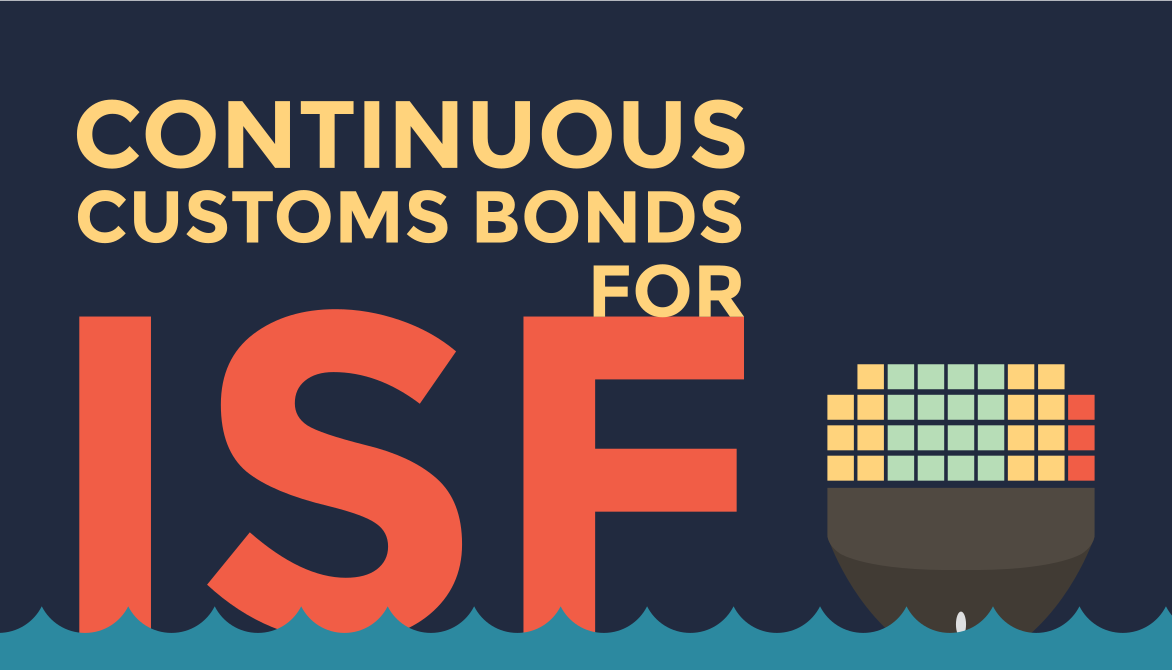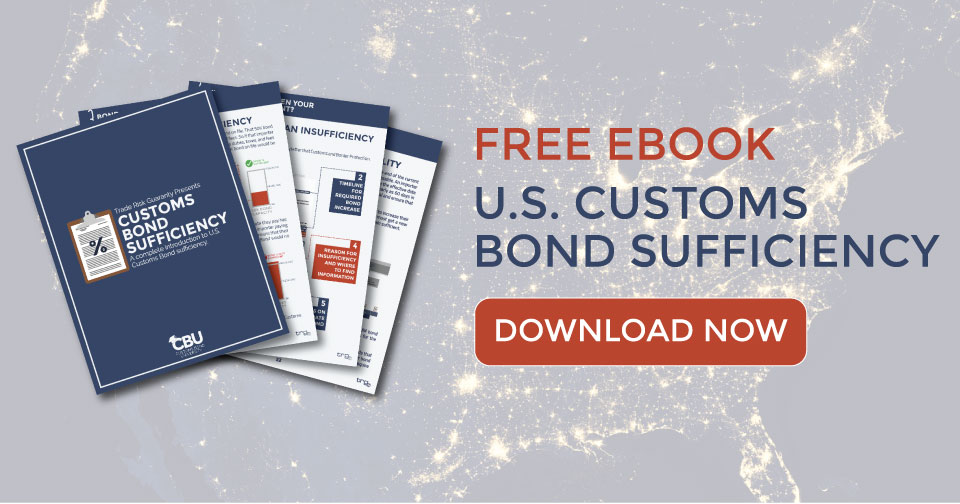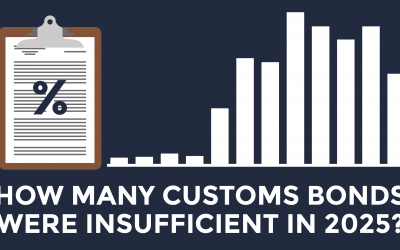Importer Security Filing (ISF) requires both importers and carriers to submit additional information pertaining to cargo for import into the United States by ocean vessel to Customs and Border Protection (CBP) 24 hours prior to departure.
The new regulation commenced January 26th under a “graduated enforcement” approach by CBP. All ISF filings are required to be secured with a U.S. Customs bond.
Since 1991, TRG has provided continuous Customs bonds to importers. The most common Customs bond is the import bond. These particular surety bonds guarantee CBP that any duties or fines owed by the importer will be paid either by the importer or the Surety through which the bond is placed. Importer Security Filing creates the potential for higher penalties on U.S. importers, thus requiring a surety bond be associated with the filing.
CBP has amended the following continuous bonds to cover ISF:
Activity Code 1 – Continuous Importer Bond
Activity Code 2 – Bonded Custodian Bond
Activity Code 3 – International Carrier Bond
Activity Code 4 – Foreign Trade Zone Operator Bond
A new continuous bond referred to as the “Appendix D” bond is the other continuous Customs bond that will cover an ISF. TRG has opted to continue to only provide the bonds amended for ISF rather than the Appendix D bond. TRG feels there are little to no situations in which the Appendix D bond would be necessary.
CPB is also allowing importers to secure the ISF with a new ISF single entry bond. “We gave serious consideration to providing single entry bonds. However, in our experience, we have found that continuous bonds are a much lower risk to the Sureties we underwrite for. Keeping our risk at a minimum allows us to offer below-market pricing on the continuous bond. Also, with the new regulation, the continuous bond will now be the most economical decision for small, medium and large enterprises,” Laura Michel, VP of Operations, stated during a recent Customs bond webinar hosted by TRG.







